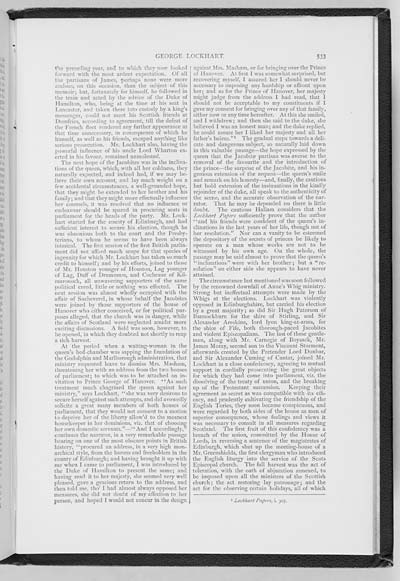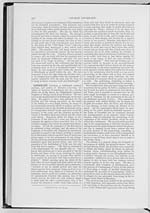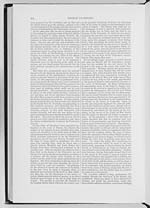533
the preceding year, and to which they now looked
forward with the most ardent expectation. Of all
the partisans of James, perhaps none were more
zealous, on this occasion, than the subject of this
memoir; but, fortunately for himself, he followed in
the train and acted by the advice of the Duke of
Hamilton, who, being at the time at his seat in
Lancaster, and taken there into custody by a king's
messenger, could not meet his Scottish friends at
Dumfries, according to agreement, till the defeat of
the French fleet rendered any further appearance at
that time unnecessary, in consequence of which he
himself, as well as his friends, escaped anything like
serious prosecution. Mr. Lockhart also, having the
powerful influence of his uncle Lord Wharton ex-
erted in his favour, remained unmolested.
The next hope of the Jacobites was in the inclina-
tions of the queen, which, with all her coldness, they
naturally expected, and indeed had, if we may be-
lieve their own account, and lay much weight on a
few accidental circumstances, a well-grounded hope,
that they might be extended to her brother and his
family; and that they might more effectually influence
her counsels, it was resolved that no influence or
endeavour should be spared in procuring seats in
parliament for the heads of the party. Mr. Lock-
hart started for the county of Edinburgh, and had
sufficient interest to secure his election, though he
was obnoxious both to the court and the Presby-
terians, to whom he seems to have been always
inimical. The first session of the first British parlia-
ment did not afford much scope for that species of
ingenuity for which Mr. Lockhart has taken so much
credit to himself; and by his efforts, joined to those
of Mr. Houston younger of Houston, Lag younger
of Lag, Duff of Drummure, and Cochrane of Kil-
maronock, all unwavering supporters of the same
political creed, little or nothing was effected. The
next session was almost wholly occupied with the
affair of Sacheverel, in whose behalf the Jacobites
were joined by those supporters of the house of
Hanover who either conceived, or for political pur-
poses alleged, that the church was in danger, while
the affairs of Scotland were neglected amidst more
exciting discussions. A field was soon, however, to
be opened, in which they doubted not shortly to reap
a rich harvest.
At the period when a waiting-woman in the
queen's bed-chamber was sapping the foundation of
the Godolphin and Marlborough administration, that
ministry requested leave to dismiss Mrs. Masham,
threatening her with an address from the two houses
of parliament; to which was to be attached an in-
vitation to Prince George of Hanover. "As such
treatment much chagrined the queen against her
ministry," says Lockhart, "she was very desirous to
secure herself against such attempts, and did avowedly
solicite a great many members of both houses of
parliament, that they would not consent to a motion
to deprive her of the liberty allow'd to the meanest
housekeeper in her dominions, viz. that of choosing
her own domestic servants."�"And I accordingly,"
continues the narrator, in a very remarkable passage
bearing on one of the most obscure points in British
history, "procured an address, in a very high mon-
archical style, from the barons and freeholders in the
county of Edinburgh; and having brought it up with
me when I came to parliament, I was introduced by
the Duke of Hamilton to present the same; and
having read it to her majesty, she seemed very well
pleased, gave a gracious return to the address, and
then told me, tho' I had almost always opposed her
measures, she did not doubt of my affection to her
person, and hoped I would not concur in the design
against Mrs. Masham, or for bringing over the Prince
of Hanover. At first I was somewhat surprised, but
recovering myself, I assured her I should never be
accessary to imposing any hardship or affront upon
her; and as for the Prince of Hanover, her majesty
might judge from the address I had read, that I
should not be acceptable to my constituents if I
gave my consent for bringing over any of that family,
either now or any time hereafter. At this she smiled,
and I withdrew; and then she said to the duke, she
believed I was an honest man; and the duke replied,
he could assure her I liked her majesty and all her
father's bairns."1 The gradual steps towards a deli-
cate and dangerous subject, so naturally laid down
in this valuable passage�the hope expressed by the
queen that the Jacobite partisan was averse to the
removal of the favourite and the introduction of
the prince�the surprise of the Jacobite, and his in-
genious extension of the request�the queen's smile
and remark on his honesty�and, finally, the cautious
but bold extension of the insinuations in the kindly
rejoinder of the duke, all speak to the authenticity of
the scene, and the accurate observation of the nar-
rator. That he may be depended on there is little
doubt. The cautious Hallam considers that the
Lockhart Papers sufficiently prove that the author
"and his friends were confident of the queen's in-
clinations in the last years of her life, though not of
her resolution." Nor can a vanity to be esteemed
the depository of the secrets of princes be likely to
operate on a man whose works are not to be
witnessed by his own age. On the whole, the
passage may be said almost to prove that the queen's
"inclinations" were with her brother; but a "re-
solution" on either side she appears to have never
attained.
The circumstance last mentioned was soon followed
by the renowned downfall of Anne's Whig ministry.
Strong but ineffectual attempts were made by the
Whigs at the elections. Lockhart was violently
opposed in Edinburghshire, but carried his election
by a great majority; as did Sir Hugh Paterson of
Bannockburn for the shire of Stirling, and Sir
Alexander Areskine, lord lyon king-at-arms, for
the shire of Fife, both thorough-paced Jacobites
and violent Episcopalians. The last of these gentle-
men, along with Mr. Carnegie of Boysack, Mr.
James Moray, second son to the Viscount Stormont,
afterwards created by the Pretender Lord Dunbar,
and Sir Alexander Cuming of Cantar, joined Mr.
Lockhart in a close confederacy, agreeing to mutual
support in cordially prosecuting the great objects
for which they had come into parliament, viz. the
dissolving of the treaty of union, and the breaking
up of the Protestant succession. Keeping their
agreement as secret as was compatible with its effi-
cacy, and prudently cultivating the friendship of the
English Tories, they soon became conspicuous, and
were regarded by both sides of the house as men of
superior consequence, whose feelings and views it
was necessary to consult in all measures regarding
Scotland. The first fruit of this confederacy was a
breach of the union, committed by the House of
Lords, in reversing a sentence of the magistrates of
Edinburgh, which shut up the meeting-house of a
Mr. Greenshields, the first clergyman who introduced
the English liturgy into the service of the Scots
Episcopal church. The full harvest was the act of
toleration, with the oath of abjuration annexed, to
be imposed upon all the ministers of the Scottish
church; the act restoring lay patronage; and the
act for the observing certain holidays, all of which
1 Lockhart Papers, i. 307.

![]() Universal Viewer |
Universal Viewer | ![]() Mirador |
Large image | Transcription
Mirador |
Large image | Transcription
![]()

